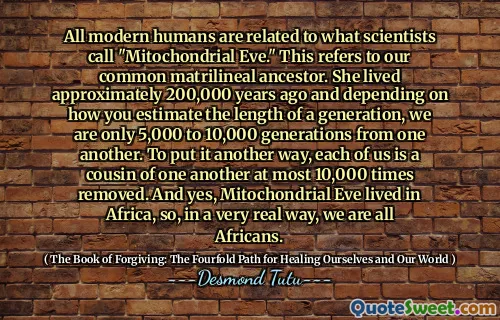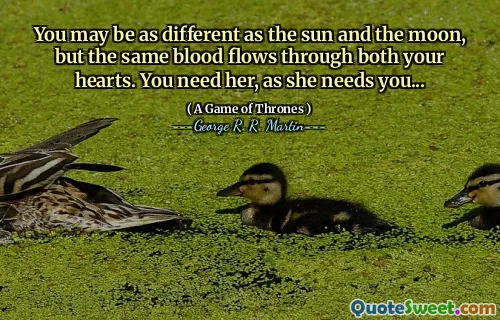
All modern humans are related to what scientists call "Mitochondrial Eve." This refers to our common matrilineal ancestor. She lived approximately 200,000 years ago and depending on how you estimate the length of a generation, we are only 5,000 to 10,000 generations from one another. To put it another way, each of us is a cousin of one another at most 10,000 times removed. And yes, Mitochondrial Eve lived in Africa, so, in a very real way, we are all Africans.
This quote profoundly reminds us of the deep interconnectedness shared by all humans, emphasizing our common heritage rooted in a single ancestor — Mitochondrial Eve. When contemplating the vast timeline of human evolution, it's astonishing to realize that despite the countless diversities, languages, customs, and identities that define cultures around the world today, at our core, we are all relatives, separated by relatively few generations. This perspective fosters a sense of unity and shared identity, dissolving illusions of superiority or difference based solely on geography or ethnicity. It challenges us to reconsider notions of division and promotes empathy, as it makes clear that beneath the surface, we belong to one human family. Recognizing that we all descended from an ancestor in Africa also serves as a powerful reminder of origins—our roots—linking us to a continent that holds a special significance in human history. It underscores the importance of respecting all cultures and recognizing our collective responsibility toward one another, transcending borders and divisions. Science helping to uncover how interconnected we are diminishes prejudices and cultivates understanding. This knowledge can be harnessed to promote inclusivity and compassion, encouraging us to see each individual not as different, but as variations of the same story, written over millennia by our shared ancestors.





